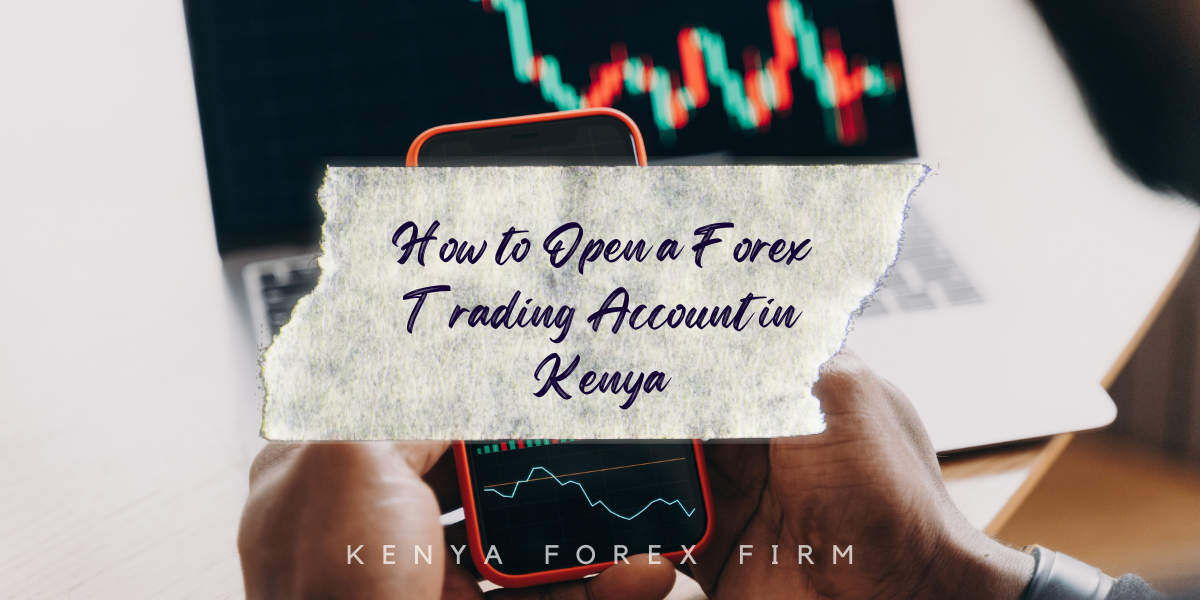Forex trading as a full-time job is a possibility, but it requires a significant commitment, discipline, and mastery of skills. It’s not a decision to be taken lightly, as it can be a high-pressure job, especially when it becomes your only source of income.
The Reality of Full-Time Forex Trading
Forex trading has become increasingly popular in recent years, especially in Kenya. The forex market is the largest and most liquid financial market in the world, with more than $5 trillion traded on average every day. The appeal of forex trading lies in its accessibility, the potential for high returns, and the flexibility it offers.
When you trade full-time, you have more time to dedicate to trading, allowing you to fully immerse yourself in the market’s dynamics. You can choose a working day that includes one full trading session or one full intersection of the trading sessions to trade during the most active hours in Forex.
This approach also allows you to organize your trading, making you more disciplined and offering opportunities to improve your level of organization in all aspects of Forex trading.

Forex trading can be a full-time job if you have the right education, consistently make profits, and have accurate technical analysis skills.
But… While the idea of forex trading as a full-time job may sound appealing, it’s important to understand that it’s not a quick way to make money or achieve financial freedom instantly. It requires hard work, dedication, and a significant amount of time to grow your capital.
It’s important to be honest with yourself when considering this as a career path. If you’re not prepared, it’s best to avoid trading forex full-time as it could negatively impact your trading career, financial well-being, and psychological state.
Most traders with full-time jobs only manage to fit in a couple of hours for forex trading, but it’s up to the individual to maximize that time. You must devote some time to learning about trading if you are serious about taking control of your financial future.
If you’re committed to the idea of becoming a full-time Forex trader and want to quit your job immediately, there are a few things you need to consider.
Factors to Consider Before Making Forex Your Full Time Job
- Education & Learning: Start by learning the basics of forex trading, including how to read charts, analyze market trends, and manage risk. Many forex brokers offer educational resources, including webinars, tutorials, and demo accounts for practice.
- Develop a Trading Plan: Successful forex traders have a well-defined trading plan that outlines their financial goals, risk tolerance, and specific trading strategies
- Capital Management: It’s imperative that you separate your trading capital from the money you will use to pay yourself a salary. Your trading capital is to remain untouched and should be used to derive your income from.
- Time Management: If you can only spare 30 minutes to one hour in between work, use intra-day or swing trading strategies so you won’t have to stare at the charts all day.
Successful forex trading requires continuous learning, efficient capital management techniques, the ability to take risks, and a robust trading plan. It’s also important that you learn how to manage your emotions and avoid common pitfalls such as fear of missing out on a trade or greed, which can lead to overtrading or allocating too much of your capital in a single trade.
Becoming a Full-Time Forex Trader
Commitment: The Foundation of Success
The first step towards becoming a full-time Forex trader is making a firm commitment. Treating forex trading like another side-hustle won’t lead to success; you need to be all in.
This commitment involves dedicating time to learn, practice, and refine your trading skills consistently.
It also means allocating enough capital to fund your trading account and being prepared to face the ups and downs of the market.
Without complete commitment, the Forex market will chew you up and spit you out. But with unwavering dedication, you can unlock the door to the thrilling world of full-time trading.
Discipline: The Key to Consistency
Once you’ve committed to the journey, discipline becomes your guiding star. Successful Forex trading requires sticking to your trading plan and analysis, even when emotions threaten to derail you. Discipline helps you to act rationally in the face of fear, greed, or euphoria.
- You must meticulously record and analyze your trades to refine your edge.
- Discipline means cutting losses quickly and letting winners run.
- A lack of discipline can turn a promising trading career into a gambler’s downfall.
Through discipline, you’ll create consistency, allowing you to earn a full-time living from Forex trading.
Skill Mastery: The Path to Profitability
No successful trader is born with innate skills. They invest time and effort in honing them.
You must master analyzing charts, identifying patterns and trends, and executing strategies flawlessly.
Skills allow you to exploit opportunities and avoid pitfalls.
- Keep learning and practicing new techniques until they become second nature.
- Stay abreast of global financial developments, as the markets continuously evolve, and so must you.
With robust skills, you can profit in both bull and bear markets. So dedicate yourself to mastering the intricacies of Forex trading.
Evidence That Forex Trading Can Become a Full-Time Job
Our founder, Patrick Mahinge, is one of the most successful forex traders in Kenya. What started as a hobby while working a 9-to-5 job turned into a full-time endeavor once Patrick realized he could earn more from trading than his day job.
He eventually founded his own company, Kenya Forex Firm, which provides training and portfolio management to aspiring Kenyan traders. Patrick’s story shows that with commitment to continuous learning, forex trading can become a lucrative career path.
Successful Forex Traders in Kenya
Patrick’s success story is not unique. Many Kenyan Forex traders have successfully turned this venture into a full-time job. Let’s look at some of these successful traders:
- Ken Githaiga: Ken has been trading on the Forex market since leaving college in 2008. He is a self-taught trader who acquired all his knowledge from Google searches and YouTube videos. To him, Forex trading is only a small part of his portfolio, but he has managed to make it a significant income source.
- Paul Mugenda: Paul has become one of the most successful traders in the country through teaching herself how to trade more efficiently. This includes reading books, attending seminars, and opening demo accounts.
- Silah Obegi: The CEO of Meta Capital Limited and the director of Nairobi School of Forex. He began trading forex in 2012 and launched his own forex trading company in 2015.
- Sylvia Muchai: Sylvia’s forex trading success story emphasizes the importance of risk management. By implementing discipline, she now trades profitably full-time. Her experience shows risk mitigation is mandatory, not optional.
These success stories show that with the right approach, dedication, and discipline, forex trading can indeed be a full-time job.
Challenges and Downside of Trading Forex As a Full Time Career
Forex trading can seem like an exciting and lucrative career for beginners in Kenya. The ability to make money from anywhere with just a laptop and internet connection is certainly appealing. However, there are some significant challenges and downsides to be aware of before committing to forex trading full-time.
Time Commitment
Forex trading is not a “set it and forget it” kind of job. It requires a significant time commitment. The forex market operates 24/5, meaning you’ll need to constantly monitor your trades and react quickly to market movements.
Short-term trading, in particular, requires a daily commitment of at least two hours. This can be stressful and can lead to a work-life imbalance.
Psychological Pressure
Forex trading can be an emotional rollercoaster. The high-risk nature of trading leads to immense psychological pressures. Coping with losses, fear of missing out, greed, and isolation as a solo trader can negatively impact mental health. Remaining disciplined despite emotional volatility is challenging.
High Risks and Volatility
The forex market is extremely volatile and prices can fluctuate rapidly. High leverage ratios mean both profits and losses can be magnified. For beginners, this volatility results in a high risk of losing your capital quickly. Maintaining discipline and sticking to a robust risk management strategy is essential but difficult, especially for inexperienced traders.
No Guaranteed Income
There is no guaranteed income as a forex trader despite the potential to earn high profits. Experiencing consistent losses could mean you earn nothing at all. This uncertainty makes it difficult to rely on trading income to cover living expenses. Having emergency savings is advised when trading full-time.
Final Thoughts: Can Forex Be a Full-Time Job?
Forex trading can indeed be a full-time job, but it requires a significant amount of commitment, discipline, and skill mastery. It’s not a decision to be taken lightly, and it’s crucial to be fully prepared for the challenges that come with it.
While some traders have successfully made Forex trading their primary source of income, it’s important to remember that the market is highly volatile and lacks transparency.
Additionally, there is a steep learning curve, and traders must continuously engage in self-directed learning to stay ahead.
But for those who are committed, skilled, and financially ready, Forex trading can be a full-time job.





